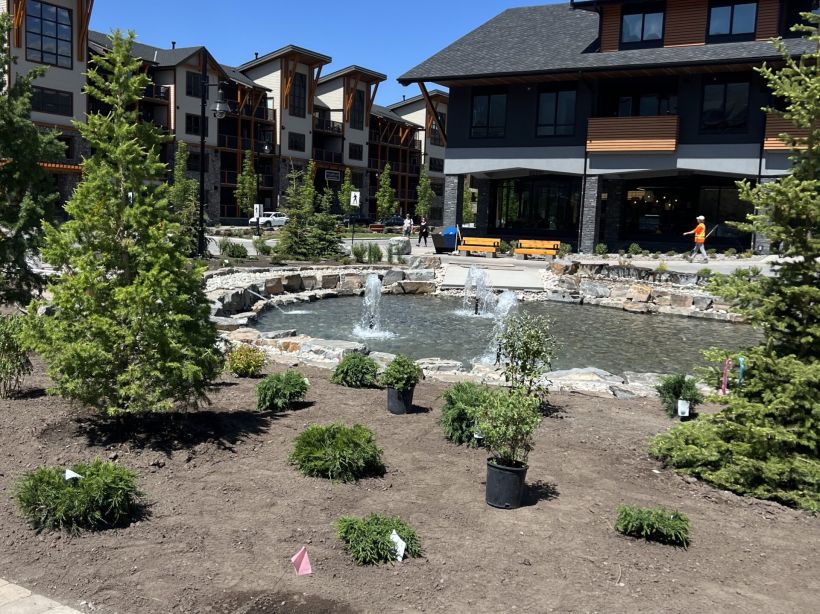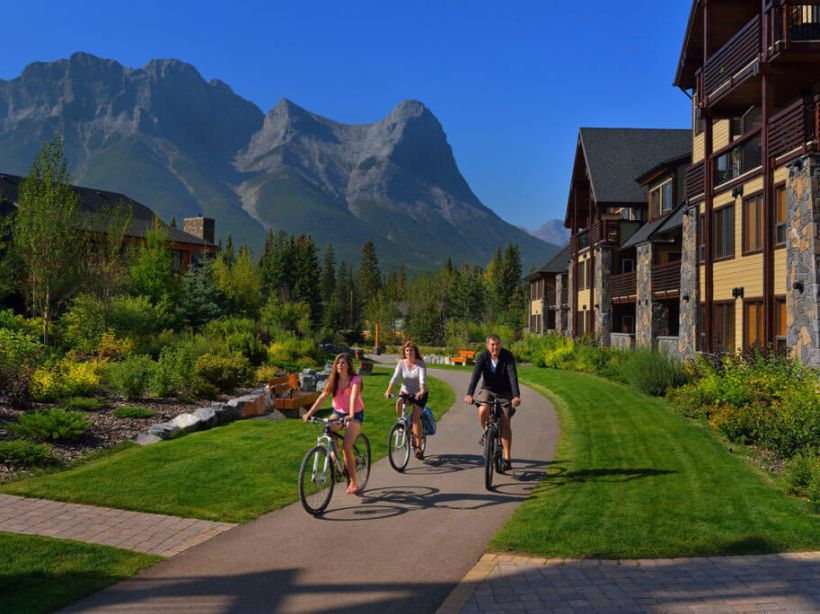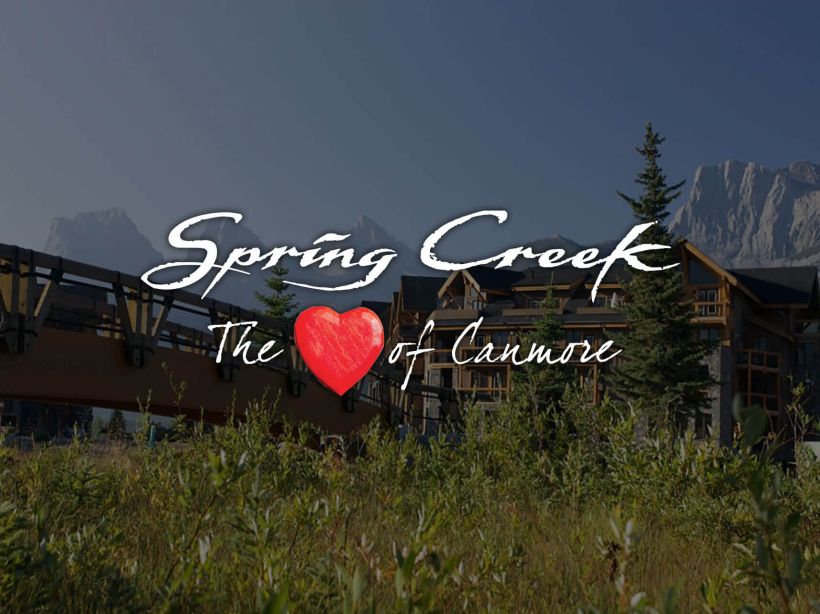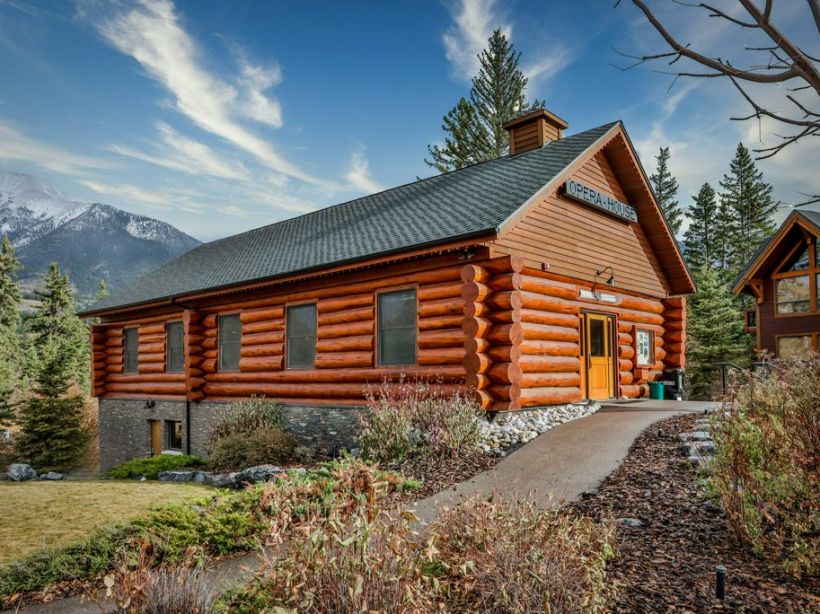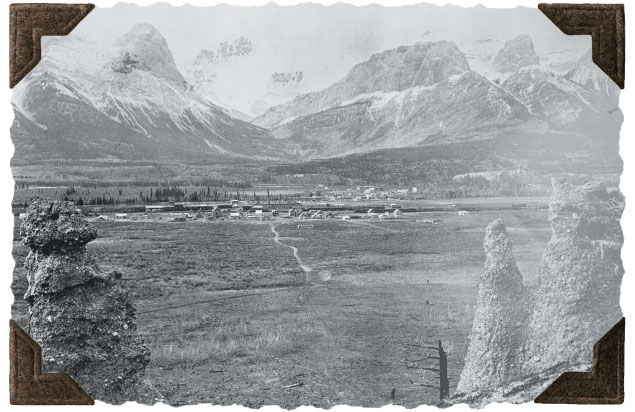
Originally published in the Canmore Leader, May 11, 1989
E.D. Garner was 28 when he came to Canmore from England in 1927. He was bringing his 14-year-old niece Irene to join her mother Olive, brother Dennis and step-father Sid Jones. He liked what he found here and settled into the community.
He was an accomplished landscape painter, amateur actor and as the narrative which follows shows, an entertaining writer. During the 1930s, he was involved with the Canmore Times as both an illustrator and writer.
In 1937, he was returned to England. He didn’t come back to Canmore until 1983, when he and his wife Margaret came for the Centennial Reunion.
He died at his home in Derbyshire, England on Feb. 11 of 2021.
It soon became imperative for me to try to secure some form of employment and I was told that I was indeed fortunate when a farmer in the valley offered to take me on.
Mr. Kernick, the owner of the farm, provided most of the milk for the town. He was a rather hard-bitten Canadian who took rather a dim view of anything or anyone English. He apparently had listened to the advice of his wife and offered me a dollar a day and my keep.
The farm was a rambling collection of buildings, a hay-barn, cow-barn, dairy, several chicken-houses, a low-roofed ranch=house against which was a lean-to bunkhouse. I was introduced to the bunk-house by Dane whose mixture of Danish and English was somewhat difficult to understand, yet whose kindness offset the lingual difficulties I had to overcome.
There was a rough dirt floor and around the walls were bunk, which did not look the least inviting. These contained palliasses filled with straw. In the middle of the room an oil-lamp was swinging over a rough table, around which the farm-hands were gathered playing poker.
Four faces were lifted momentarily as we entered, and as quickly dropped to study the game. During a pause in the play, introductions were offered by Carl the Cane. “Lefty,” a bowlegged unshaven individual in blue-denim overalls and checked shirt, “meet the new hired-man. Say, what’s your name?”
“Garner,” I replied, “E.D. Garner.”
“Here, you guys meet E.D.” and while I was working with them, I acknowledged the name of “Edie” without protest. Buster and Ed were Canucks and grunted in acknowledgement being too interested in the way that “Chet,” a small moon-faced youth, was dealing cards.
The air was thick with tobacco smoke, and I watched Lefty neatly roll a cigarette with one hand, holding the sack of Bull-Durham makings in his teeth. His other hand gripped the cards.
For a long while the silence was broken only by the gruff voices of the players as they bid or called for a card, and I turned longingly for a seat, which happened to be an upturned soap box.
I asked the Dane what time we were supposed to start work and he told me that Mrs. Kernick would see to that. Later, Carl nodded in the direction of a spare bunk and I crawled in and as I lay there I noticed a large bell suspended form the middle of the roof.
It was the clanging of the bell which aroused me, I tumbled out of the bunk half expecting to find what the farm was on fire. The other five crawled out without much haste and the clanging stopped. I gathered that this was the normal way in which the day’s work started, after a moment at the tin wash-basin I filled from a bucket which had a dipper in it. I joined the others as we went outside into the early morning.
It was still dark and I noticed with dismay that the hands of my watch showed it was four minutes past five o’clock. I followed the Dane who seemed to be my appointed guardian and asked him about the alarm-bell.
It seemed that the end of the bell rope was hanging over Mrs. Kernicks’ bed and when the time to get up came she reached up and pulled hence the nerve-shattering jangling which was our daily alarm.
We entered the cow-barn to feed the animals and it was agreeably warm inside. There were over 30 cows knee-deep in litter. Armfuls of provender were supplied to the cows. Then came the business of milking. We were engaged in this task nearly an hour later when Mr. Kernick came in. There was no cheery greeting from him, only some rather caustic remarks about the poor ability of the “so-an-so” English in milking.
At eight o’clock there was another clanging from the direction of the ranch-house and there was a concerted rush in that direction. Outside the kitchen door was a metal triangle which was still swinging after the violent assault on it by the farmer’s wife.
We entered the kitchen and breakfast was laid out on a large table. Porridge, milk, sugar, bacon and eggs and French-fried potatoes.
It may be that I was somewhat different about things in my new environment. Goodness knows I was hungry, but by the time I had settled in a seat my companions had reached fore the greater portion of the food there, and were shoveling it into open mouths at a rate which was positively alarming. There was very little left for me to reach for, so it was an early lesson in the need for alacrity for me.
There was complete silence except for the sound of food being masticated. Some 10 minutes or so later the silence was almost complete. The boys from the bunkhouse were performing wonder with toothpicks. I reached for a smoke, but before I got it to my mouth the voice of the rancher cut into the silence. “Okay, fellers, on your way.”
We filed out with never a word and the tasks of the day knew our unwilling feet. I was introduced to the art of bottling milk and the morning passed reasonably quickly doing the variety of chores, which seemed to come my way.
The weather had worsened and a biting east wind blew up the valley. Muffled in a scarf and mackinaw=coat with an extra pair of overalls on, I was fairly comfortable except for my feet. I noticed that the others wore black felt boots, which were partially covered with rubbers. I had a pair of ordinary leather boots, and I could not help getting my feet damp when working in the dairy. I decided that at the first opportunity, I would buy a pair of felts and also a thick pair of mitts.
About one o’clock, the triable came into action again and this time I moved with more speed into the kitchen and like the others was already reaching for food as I sat down. This time I had a more respectable portion of food on my plate. Fifteen minutes later, we filed out into the keen wind again, but the comfortable fullness of my stomach helped to give me a more optimistic view of life.
That afternoon, Carl and I were ordered to take a team and rig over to the railroad depot and to haul a load of alfalfa to the farm.
The gearing of the horses was done in a fashion that was foreign to me, being appreciably different from the way it is done at home. On arrival at the marshalling yard of the depot, we found the box-car and I saw that the hay was in bales weighing nearly 200 weight. We loaded the rig and went back to the farm and unloaded the hay in the loft above the cow-barn. By supper time, my muscles were beginning to crack under the strain.
The booming of the triangle at six o’clock was no longer raucous but sweet music indeed. I felt that after more than twelve hours work there would be a welcome period of relaxation and prepared to stretch my weary limbs in the warmth of the kitchen.
With sinking feelings, I watched the farmer nod us out into the cold again after supper. My fingers made a poor job of milking the cows. They bore several blisters, one of two had burst. The farmer came into the barn after a while and made a few caustic remarks concerning greenhorns who thought that they were tough.
By nine o’clock, the day’s work was complete and I thankfully sought the interior of the bunk-house. I crawled into my bunk only pausing to take off my boots. I lay there for a while thankful to rest my limbs. My feet were very sore and when I sat up to take off my socks, I pulled off a fair amount of skin from my toes.
Carl looked at my feet and informed me that it looked as if I had frostbite. He went over to his bunk and retuned with a tin of ointment and a strip of rag, and with sympathetic grunts he made a fair job of wrapping up my toes. The other four had already resumed their nightly game of poker and I watched them for a moment or two and fell asleep.
A second or so later, or so it seemed, I was awakened by the jangling of the bell and groaning in spirit I gingerly lowered myself to the bunk-house floor. My feet were so swollen I could not put my boots on, but Carl again came to my aid and lent me an old pair of rubbers. They were much too big, but after pulling on an extra pair of socks, I found I could walk and was not rendered immobile.
As each weary day followed another, I tried not to think too much of the comfortable home I had left behind in England. I quietly told myself that I would make good and not quit the country before I had given it a fair trial. I would stay at least for several years and then, if I could, I would return to the hills of home.
Gradually my hands toughened and my muscles ached less. Still my feet were very painful and although I dressed them each day, the toes blackened and my Danish friend began to be worried. He feared that gangrene might set in and suggested that I should go into town and see the doctor.
The farmer grudgingly allowed Carl to take me into town on the rig, which by now had been fitted with skis instead of wheels, and I hobbled into Dr, Worthington’s office. Carl was an interested spectator as the doctor took off the crude bandages.
The doctor gave my toes a quick scrutiny and gave me a lecture on frostbite, and its dangers. Finally, he said, “You’ll have to lie up for a few weeks. You can’t walk around on those feet.”
The only course left open for me was to go back to my sisters home. It would be useless to go back to the farm. After we came out of the doctor’s office we drove over to the Mineside of the town where my sister lived.
Carl promising to bring over my belongings from the farm and to tell the farmer that I would probably not be back to work for him for a while. Here, at my sister’s house, I convalesced and during that time I heard that the farmer had given my job to another man.
I cannot say that I was sorry.
